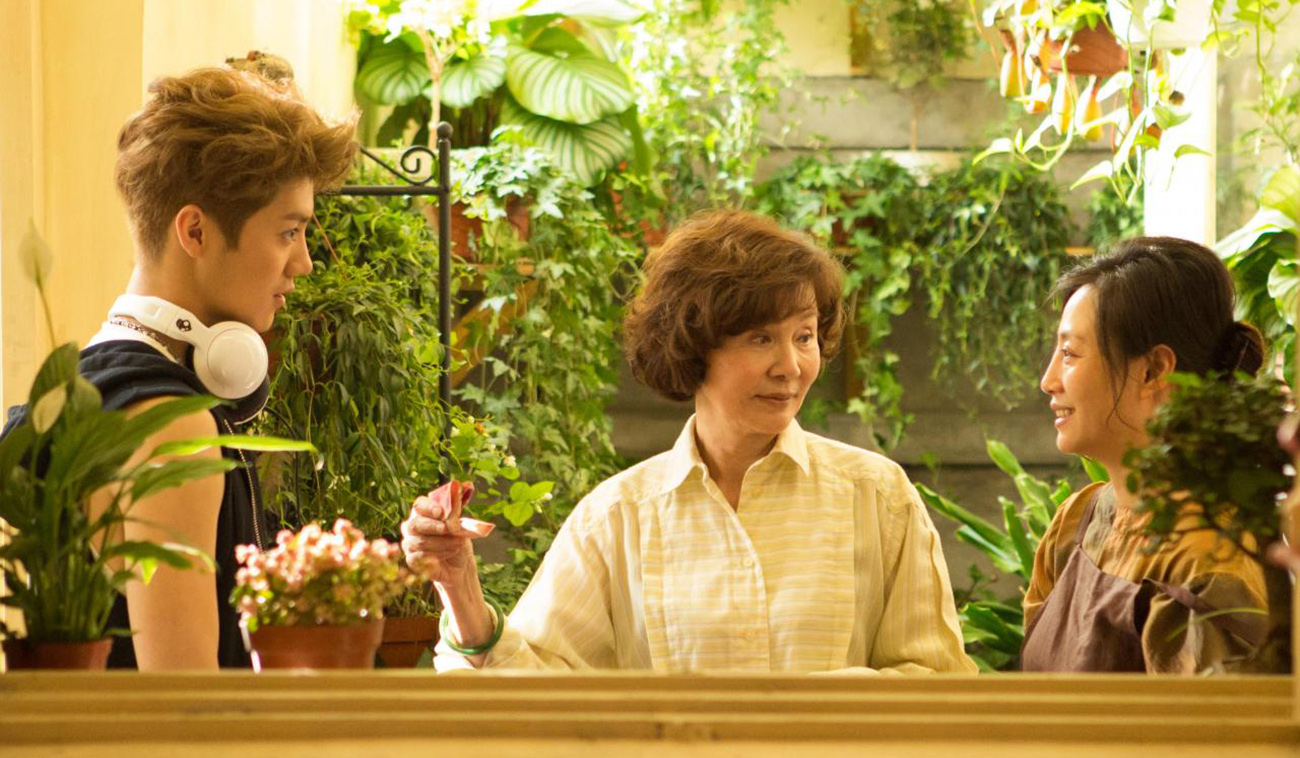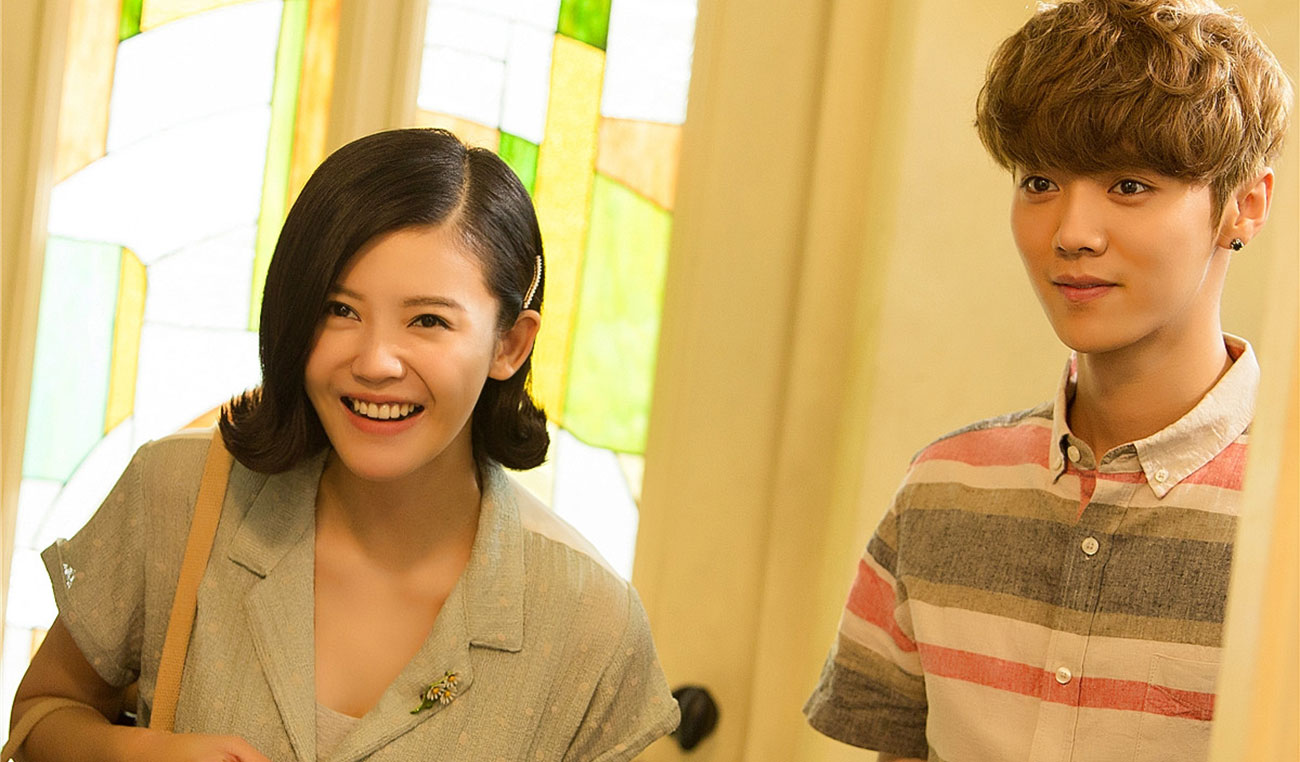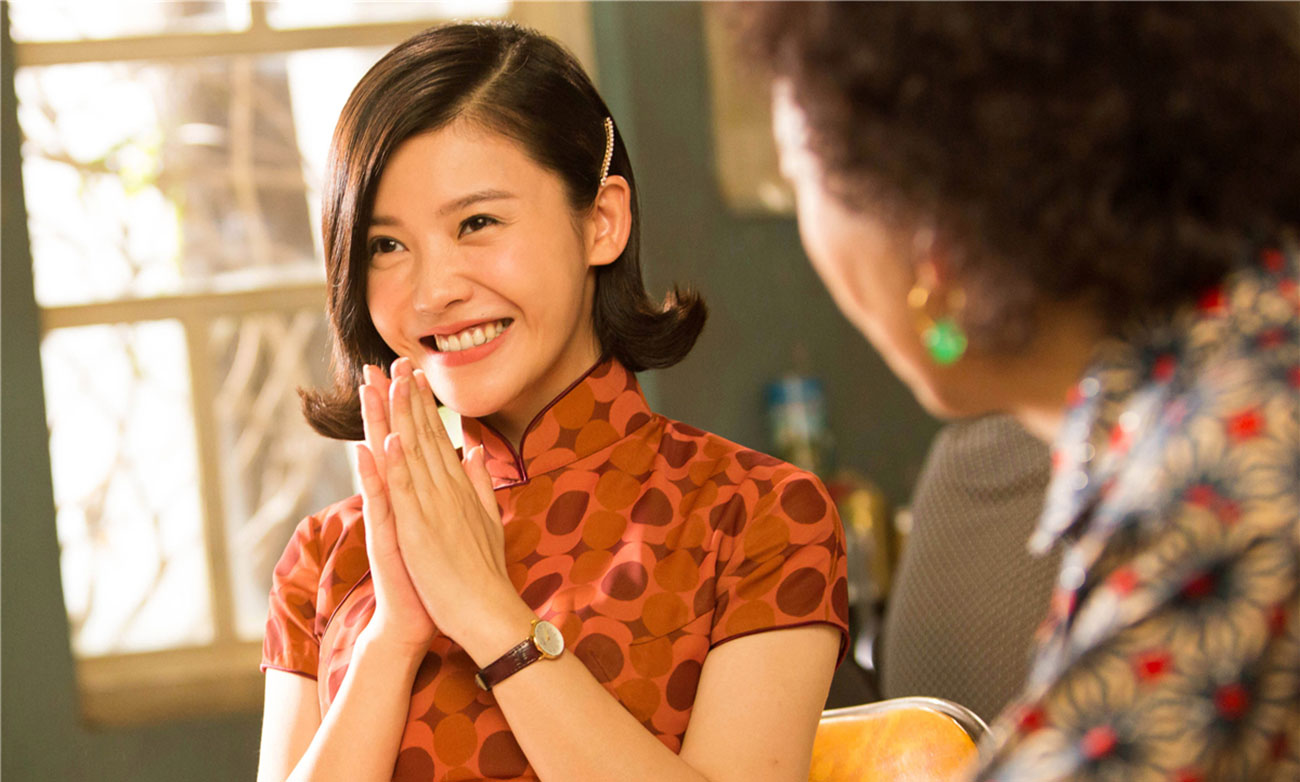Everyone has their own guilty film pleasures. Mine comes in the form of films that magically whisk their protagonists away into the bodies of either their future or former selves. Not in the time travel sense like Looper or Back to the Future, where a character’s present self meets their past/former body at some point in the film, but in the body-swapping sense like Freaky Friday or that Jennifer Garner romantic comedy from years back, Suddenly 30 (or as it was known in the States, 13 Going on 30 – a film I stupidly adore by the way). I find myself having way more fun than I ought to in these kind of movies due largely to some of the anachronistic behaviour and jokes that characters put out in these films.
Currently a big hit in China right now is 20, Once Again which follows a similar course as other body-swapping films like the similarly titled Zac Efron teen comedy, 17 Again. The film, a remake of hit Korean comedy, Miss Granny (itself also a chart topper in Korea’s domestic box office), is now screening across select cinemas around Australia.

Shen Meng Jun (Kuei Ya-lei) is an elderly lady who lives with her son’s family spends her days playing mahjong with her fellow senior citizens and criticising her son’s family, particularly his wife and daughter. After her son’s wife suffers a health scare, which the family feels Meng Jun is largely responsible for, she leaves the home upon overhearing the family’s decision to potentially put her away into a nursing home. Chancing upon an odd photography studio that she’s never seen before, Meng Jun decides to have her photo taken only to find herself stuck in the body of her 20 year-old self (Yang Zishan).
Directed by Leste Chen (Eternal Summer, The Great Hypnotist), 20, Once Again is a charming feature for most of its runtime and, like other films of its ilk, is strongly supported by anachronistic jokes and gags derived from the knowledge that in front of viewers is an elderly woman trapped inside the body of a 20-year old. For example, some awkward hijinks ensue when her grandson (played by former EXO member, Luhan) becomes smitten by her beauty after discovering her beautifully singing. Their stories are important in the film as we soon learn that Meng Jun dreamed of being a singer in her youth and her grandson is a struggling musician looking to get noticed.

Despite some solid momentum going into the first and second acts of the film, things get awfully sloppy in the third as the film begins to crumble and hurdle towards a conclusion that’s unsatisfying and somewhat incoherent. A longer film than one might have anticipated (20, Once Again runs at 130 minutes), the film throws several spanners into the cogs of its final act in an attempt to make Meng Jun’s inevitable decision to either stay in her current body or revert to her older self appear more impactful. These don’t necessarily do much to bolster the drama of the situation. Without saying too much, there are numerous factors that stall the film until its last minute and act against the nurturing qualities of Meng Jun. It’s one of the strangest third acts I can recall in a film like this and, unfortunately, it really hurts the movie.
Outside of the film’s humour and bizarre third act, there is something else about 20, Once Again that’s also particularly striking and I’d argue that it could even be the very quality that makes it stand apart from the Korean original (though, really I’ve not seen how the original goes so I can’t really say or compare on this case). Given the film’s concern with family and the elderly, 20, Once Again can also be interpreted as a film that advocates one of the oldest Chinese principles: filial piety.

Though the concept of filial piety is largely regarded as an East Asian virtue, it is also considered to be more strongly associated with Chinese traditions which is perhaps why I would consider the film to be more culturally specific to China. With the film showing the family’s consideration to put Meng Jun away in a home and the general feeling of disrespect she feels her family has shown towards her – which includes her own son who she struggled to raise in poor conditions during war-torn China – in some ways, you could read 20, Once Again as a parable of sorts on the virtue of filial piety. Of course, that’s ignoring all the misadventures that Meng Jun delightfully goes on (which includes rediscovering her passion for singing and possibly finding love once more in her returned form) but it nevertheless forms one intriguing aspect of 20, Once Again that makes it a little more interesting to watch.
20, Once Again doesn’t go for big tricks nor does it have to; it knows exactly what it is and doesn’t try to be anything more than that. The gimmick doesn’t entirely run itself into the ground though its third act successfully manages to do that instead. Still, 20, Once Again is a light-hearted charmer, one that possess enough laughs to be able to be enjoyed by most viewers and a message of paternal appreciation and respect underneath all its whimsy.
